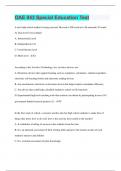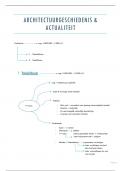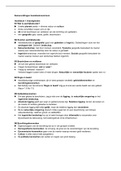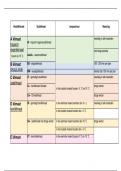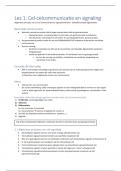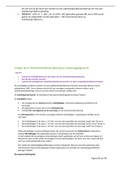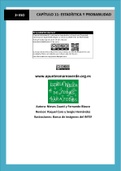In Macbeth, Shakespeare’s eponymous tragedy, the theme of kingship is utilised throughout
to compare different characters and their ways of ruling. Throughout the course of the play,
we see how characters such as Duncan rule with valour, however his antithesis Macbeth,
rules recklessly and brutally. Perhaps Shakespeare includes this as a key theme to
demonstrate what qualities were important in a good monarch, and to explore how power
corrupts the minds of men, to warn audiences to not let their hamartia of power and ambition
control their actions, so they don’t destroy the Great Chain of Being.
Throughout the play, Duncan is portrayed to possess all the qualities which make an ‘ideal’
king: he is noble, strong and nurturing. His successful reign perhaps is used to foreshadow
how disastrous Macbeth will be as a king. Ducan is depicted as a benevolent ruler, who is
invested in his followers. He says “I have begun to plant thee and will labour to make thee
full of growing” which highlights how he is dedicated to self-improvement and the success of
others and Scotland - it is clear his priorities lie with his country and is fair and gracious. The
semantic field of agriculture connotes new life and nourishment, as “plants” symbolise
growth, thus presenting him as considerate and nurturing. “Labour” also implies that he will
work hard to ensure the stability of his country. This could link to how Duncan symbolises
the Divine Right of Kings, stating how it was believed that Kings derived their authority from
God. His nurture and compassion directly aligns with God’s qualities of love and giving,
which further illustrates him as worthy and would impress a highly religious Jacobean
audience. Perhaps Shakespeare does this to encourage Jacobean audiences to follow
Duncan’s path of nobility and compassion, and reject ambition, to ensure the Great Chain of
Being isn’t disrupted.
At the start of the play, Macbeth is displayed as being an archetypal hero; he appears
“tough” and “worthy” as he loyally fights to preserve King Duncan’s power, perhaps to
foreshadow that this all may change later in the play. He is described as “brave Macbeth”
and “noble Macbeth” which presents Macbeth as a virtuous and gracious soldier. “Brave”
and “noble” connote admiration - he is a “valiant” man willing to risk his life for his king and
country - something considered to be great and heroic in a Jacobean society. Here Macbeth
is the personification of what was considered an ‘ideal’ warrior, who follows the ‘Knights
Code of Chivalry.’ This was an Arthurian legend heard by the knights of the round table.
Knights must be honest; loyal; have valour and honour. All these qualities are what Macbeth
was depicted to have, thus Macbeth displaying good kingship qualities. Alternatively, it could
be argued that this shows Macbeth’s violent nature and foreshadows his qualities of a ‘bad’
king. He is awarded this description after his merciless and brutal killing in battle, which
foreshadows his violence and warns the audience that Macbeth may transform from a
“worthy” man into a violent and tyrannical one. Shakespeare may have included this to
prepare audiences for Macbeth’s unchecked ambition and to warn them of their own actions,
to prevent them from their ambition before it is too late.
Later on in the play, Macbeth’s ruling turns out to be the antithesis of Duncan’s. Macbeth is
illustrated to be unsuccessful and callous as it is stated how “those he commands move only
in command/nothing in love” which conveys how unsuccessful he has been at forming trust
and respect between him and his subjects. It is said that “None serve him but constrained
things/whose hearts are absent too.” “Love” and “heart” connote human kindness and

